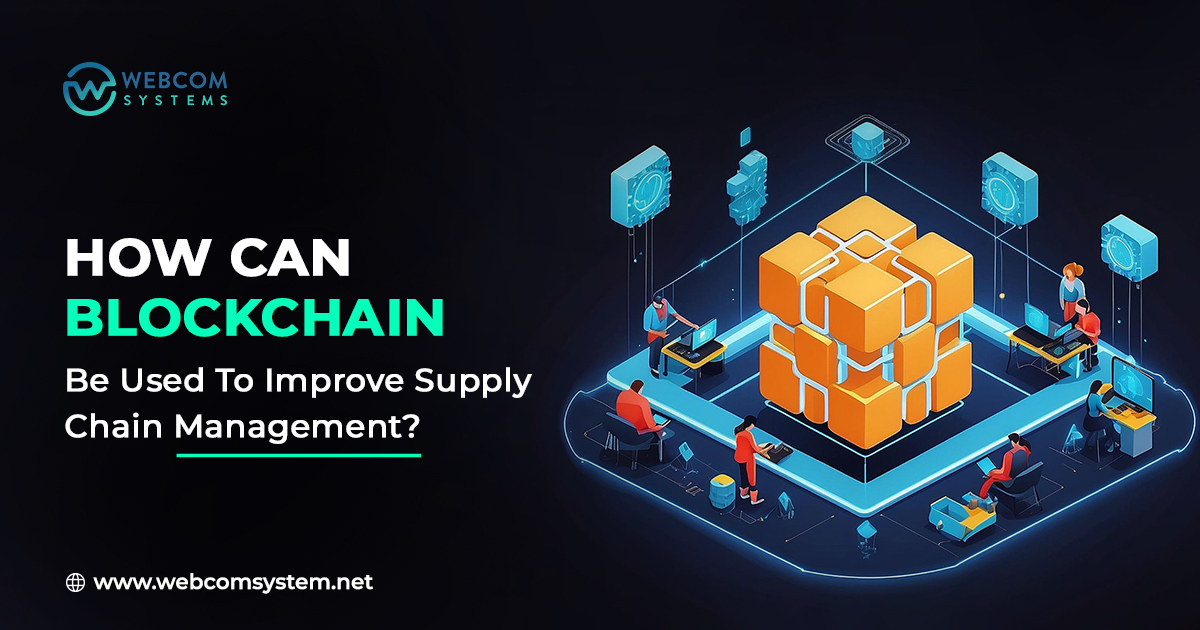The global pandemic, COVID-19, provided a close-up perspective of supply chain management, which is a critical component in establishing an organization’s effectiveness. Blockchain technology can lower administrative expenses while increasing supply chain traceability and transparency.
Current Supply Chain Landscape
Consumer expectations were centred around a two-hour delivery strategy before the 2020 COVID-19 pandemic. Consumers quickly learned the meaning of the word “supply chain,” however, when the pandemic upended that paradigm, they faced delivery delays for everything from game consoles and home office furniture to toilet paper, cell phones, and entertainment equipment. Knowledge brings with it higher expectations. These days, technology is being looked to by both Blockchain Development Companies and consumers to improve supply chains and remove, or at least lessen, bottlenecks in the system.
However, technology is not a panacea. Geopolitical tensions, cyberattacks, inflation, droughts that impact transportation by lowering water levels, key product stockouts, and the numerous unanticipated consequences of global warming are just a few of the many variables that frequently hold supply chains hostage.
Many businesses, including those in charge of supply chain effectiveness, are re-evaluating their just-in-time and lean planning strategies and challenges pertaining to source, make, deliver, and return processes and systems in light of all these disruptions. Additionally, supply chain executives are expected to anticipate and take proactive measures to address supply chain risks. These leaders are concentrating their strategic investments on three important effectiveness factors.
- Forecasting the Risk of the Supply Chain
- Using Supply Chain Traceability to Enable Environmental, Social, and Governance (ESG) Tracking
- Building Trust in a Multifaceted, Intricate Setting
Improving these three factors can help CEOs and their companies track compliance and provenance, build brand loyalty, and achieve transparency. This is where blockchain comes into play, for a lot of Blockchain Development Companies are trying to get control over their supply chains. Blockchain is a shared ledger-based transaction record system. This ledger’s intrinsic tamper-evident nature makes it a dependable, shared method for validating, logging, and viewing transactions across a complicated system involving numerous parties, some of whom might not naturally trust one another.
Leaders in the supply chain previously had to depend on redundancy to lessen disruptions. Businesses can proactively identify and reduce supply chain risks using technologies like blockchain, even if some redundancy is always necessary for essential goods. For instance, businesses in resource-intensive industries have resorted to blockchain technology to assist in reducing Scope 3 emissions to promote transparency and traceability.
Lastly, the quality & opacity of information always erodes parties’ faith in each other because global supply chains contain numerous distinct entities that are usually geographically far from each other. Blockchain technology, which guarantees information authenticity and transparency throughout upstream transactions, can help counteract such negative consequences.
How Can Blockchain Help In Improving Supply Chain Management?
To effectively implement blockchain technology in the supply chain, remember that supply networks consist of interconnected businesses. Every company in that network enhances a service before the customer uses it. A sequence of exchanges, or flows, of money, products, services, and information record this value buildup and exchange.
The possibility to record these transactions—both virtual and physical—on a shared, unchangeable ledger through the use of a “permissioned blockchain” makes it possible to collect, verify, and share data amongst these connected businesses. In the end, a single source of truth and a smooth exchange of value are available to all parties, which was not feasible before. Blockchain enhances global supply chains for an increasing number of use cases, including risk prediction, improving visibility and traceability for essential product components, and boosting data correctness, immutability, and trust among value partners.
Furthermore, blockchain technology has advanced to the point where it can work with and benefit from other cutting-edge innovations like artificial intelligence (AI), the Internet of Things (IoT), and smart contracts—code recorded on a blockchain—to create a more secure and optimized supply chain.
Advantages Of Blockchain Implementation In Supply Chain
Blockchain can significantly increase an organization’s value by lowering supply chain risk, improving visibility, and fostering trust throughout a complicated ecosystem. Additionally, organizations can use blockchain technology as an add-on enterprise solution that adds value while preserving current enterprise resource planning (ERP) software systems and other systems, without replacing historical systems. Let’s look at three concrete ways that blockchain technology might be beneficial.
- Reduced Risk
- Improved Trust
- Enhanced Visibility
Conclusion: Future Outlook For Blockchain In Supply Chain Management Imagine a scenario in which you can replace the fragmented supply chain tracking that you have now with an interoperable solution. This would greatly lower the chance of unethical sourcing, shipment delays, inadequate storage, or inefficient product distribution. Envision that you can give consumers and authorities access to your supply chain and provide unquestionable evidence that you are adhering to supply chain norms and expectations. Picture a scenario in which you fix these issues and, as a result, all the parties involved in your supply chain have greater efficiency and trust.
Blockchain technology can resolve major issues in the supply chain sector today. Despite certain operational and technological obstacles in implementing blockchain solutions, Webcom Systems is committed to helping businesses overcome these challenges. We provide reliable and robust solutions to create exceptional supply chains. In light of the current economic challenges, Webcom advises businesses to explore blockchain solutions as a potential remedy for their supply chain problems, as both consumers and corporations have high expectations of supply chains with reduced risks, increased visibility and transparency, and improved trust.
Don’t invest in outdated management systems – invest in the future with Webcom’s secure and user-centric blockchain solutions. Our team of seasoned blockchain experts will guide you every step of the way, crafting a customized solution that enhances security, privacy, and efficiency. Eliminate the risks of data breaches and wasted resources. Partner with the leading Blockchain Development Company and unlock the transformative potential of blockchain supply chain management.
Also Read: Blockchain Development Process – A Complete Guide




